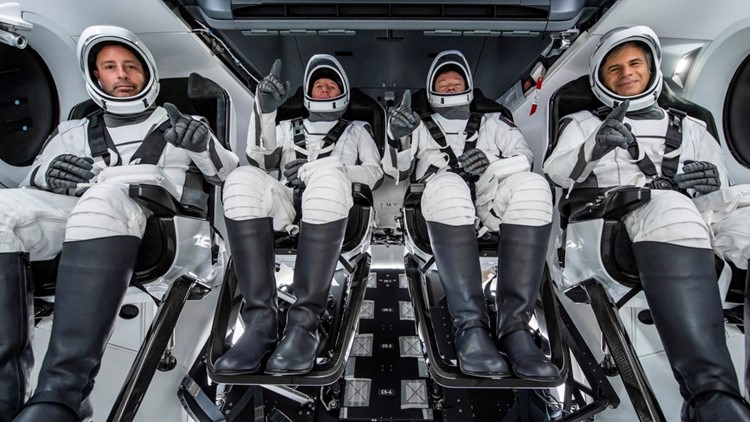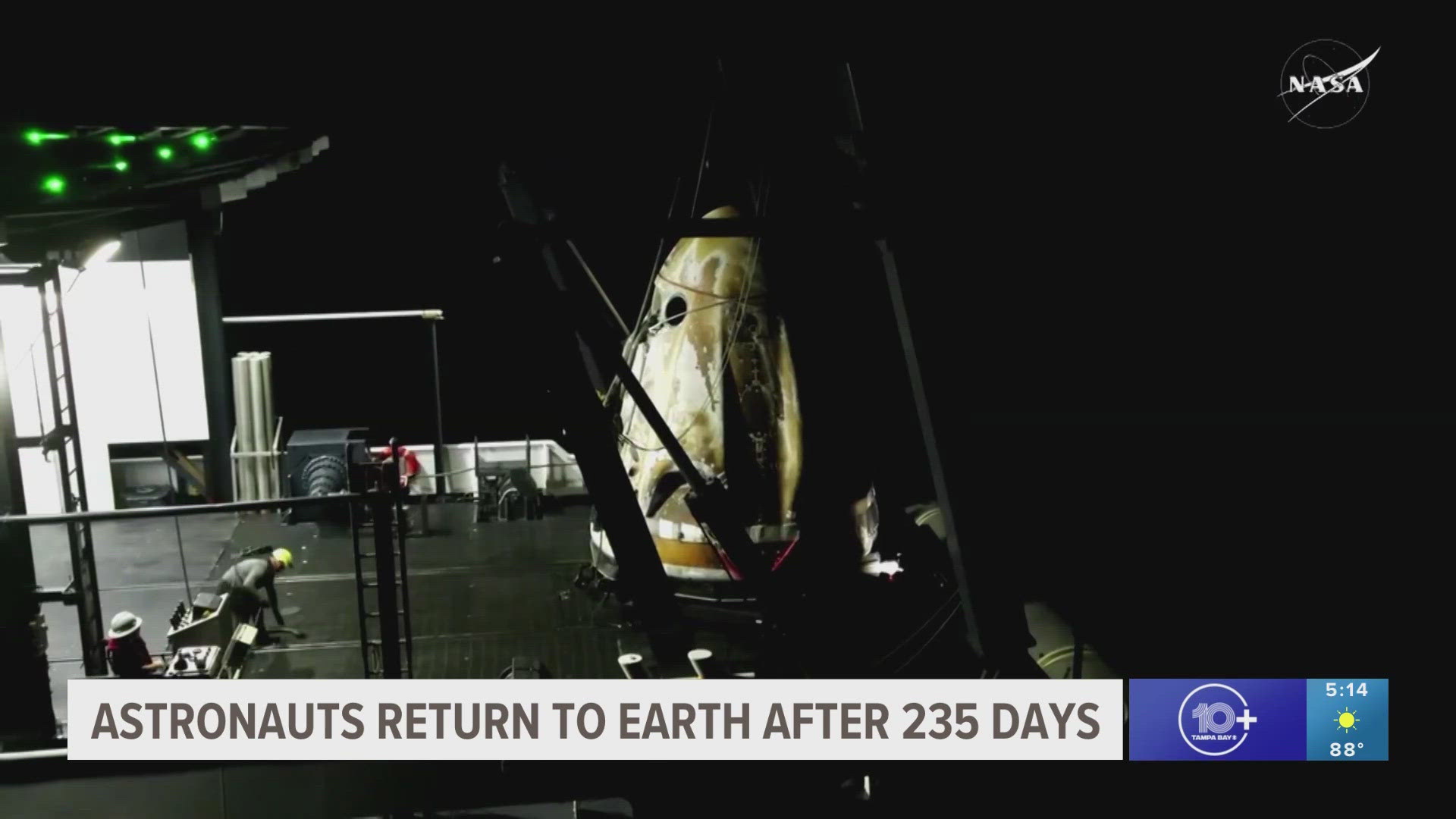CAPE CANAVERAL, Fla. — Space history is set to be made once again when the four-person Axiom Misson 1 (Ax-1) crew becomes the first-ever private astronaut mission to the International Space Station.
Michael López-Alegría, Larry Connor, Mark Pathy, and Eytan Stibbe will liftoff from Kennedy Space Center Launch Complex 39A on the Crew Dragon Endeavour atop a SpaceX Falcon 9 rocket.
Liftoff is currently set for 11:17 a.m. on April 8. The crew has spent the last week quarantining and finalizing preparations in Florida.
Once aboard the orbiting laboratory, the Axiom Space astronauts will conduct science, education and commercial activities for eight days before returning to Earth.
"The Ax-1 crew will conduct extensive research and STEM outreach. Their efforts align with how each philanthropist carries out his work at home, in service to all on Earth and to all who follow them beyond it," Axiom Space's website reads.
“This represents another significant milestone in our efforts to create a low-Earth orbit economy,” said Phil McAlister, director of commercial spaceflight at NASA. “I wish these Axiom crew members safe travels, and I hope they find their time in space productive and enjoyable.”
Ax-1 is said to be the first of several proposed Axiom missions to the ISS and is an "important step" toward the company's goal of constructing its private space station called Axiom Station. The station looks to help double the "useable volume" of the ISS and is scheduled for launch in late 2024.
Also hitching a ride on the mission to the International Space Station will be an experiment that has ties to the Tampa Bay area. Moffitt Cancer Center investigators Drs. Patsy McDonald and Derek Duckett are partnering with SpacePharma to study stress and DNA damage caused by space travel with the hope of developing therapies to prevent it.
“Space flight has significant deleterious consequences on the human body,” said McDonald, associate member of the Cancer Physiology Department at Moffitt. “Understanding how to mitigate the negative health effects of microgravity, radiation and stress from space flight is essential for safe space exploration.”
According to officials, beta-arrestin1 has been found to play a role in chronic stressed-induced DNA damage which can carry profound human health consequences. The experiment will investigate the impacts of microgravity and low orbit space flight on the gene.
You can catch the mission from Axiom Space with live coverage of prelaunch activities, liftoff and docking. Or you can tune into 10 Tampa Bay, where we will be streaming live on Facebook and YouTube.



